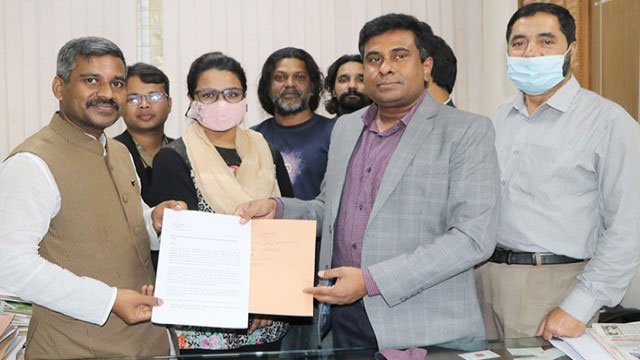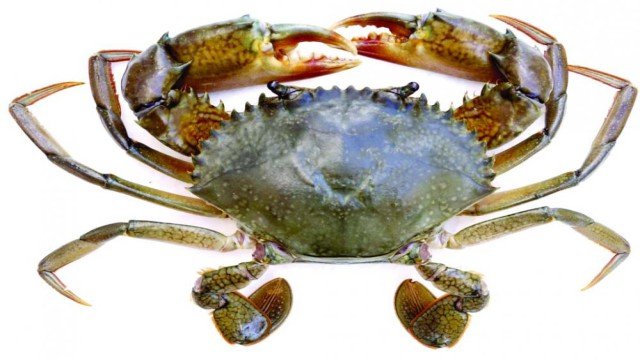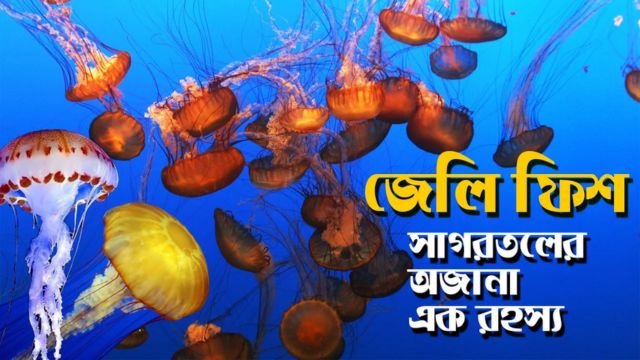World Oceans Day observed by Save Our Sea

With the theme ‘Life and Livelihood’, the World Oceans Day was observed in Bangladesh on Tuesday (June 8). On the occasion, Save Our Sea, a platform working on sea and environment, arranged a webinar. Secretary General of the organization Muhammad Anowarul Hoque moderated the event.
Chairman of Oceanography Department of Chittagong University Prof. Dr Muslem Uddin presented the keynote address at the webinar, while professor of Botany Department of Dhaka University Dr Mohammad Jasim, chief executive of Bangladesh Tourism Board Javed Ahmed, country director of World Conservation Society Dr Jahangir Alam, associate professor of Geography and Environment Department of Chittagong University Dr Bishwaji Nath, expert on blue economy Dr Dilruba Chowdury, senior scientific officer of Bangladesh Oceanography Research Institute Mohammad Zakaria, director of Save Our Sea SM Atikur Rahman and president of Marine Journalist Network Mahmud Sohel spoke at the webinar, among others.
The United Nations (UN) declared World Oceans Day as an official occasion in 2008. The UN has also hosted different themes each year to celebrate the day.
Key note speech says, Bangladesh won maritime boundary from India in 2012 and from Myanmar in 2014. After the conquest of a large number of sea areas, the possibility arose for the development of the blue economy; But even in 9 years, no master plan has been taken to utilize the ocean economy. Even in the current budget, there has been no positive announcement about the ocean economy. But the ocean economy or blue economy could be a big sector to fill the budget deficit.
Bangladesh has a sea area of 1 lakh 18 thousand 813 square kilometers. 19 ministries are working separately for the development of blue economy. That is why the work is not being coordinated. The developed countries of the world are earning billions of dollars through marine economy, which is also possible for Bangladesh. But that is not possible yet. For this, first of all, an independent ocean ministry is needed.
This long-standing demand was strongly emphasized by the country’s oceanographers and researchers at the Virtual Seminar on June 8, World Oceans Day. They say that billions of dollars from the sea economy are waiting for Bangladesh if a separate ministry with the right plan goes ahead.
Save Our Sea, a marine environmental organization, is hosting a webinar on the ocean day to mark World Oceans Day. There, the oceanographers and researchers of Bangladesh highlighted the need to form a separate ministry. They say that billions of dollars from the sea economy are waiting for Bangladesh if a separate ministry with the right plan goes ahead.
At the same time, they called for taking effective measures to prevent sea pollution. Researchers claim that if compensation can be obtained from those who are involved in the pollution, then the pollution will be reduced automatically.
Chairman of Oceanography Department of Chittagong University Prof Dr Muslem Uddin said in key note speech, “Ocean economy has emerged as a great potential for the world. Developed countries are strengthening their economy by exploiting this sector. Many countries in the world are even collecting a large part of the budget from the sea economy.
In the last 9 years, Bangladesh has not been able to form an independent ministry to extract these resources, which is disappointing. There was a demand for separate allocation for the ocean economy in this year’s budget. That didn’t happen either. Today or tomorrow, the ocean economy will be the main force of the economy of Bangladesh. The sooner Bangladesh realizes this, the sooner the country will be a sustainable and developed country.’
Moslem Uddin added, “Our Ocean health is not good now. But this sea is the source of many resources. The reservoirs of those resources cannot be seen in isolation. These must be protected. If those responsible can realize this, then our blue economy will be healthy.’
‘Why do we have to be conservative? Wherever we are in the world, people are always connected to the sea. The oceans are affecting us regularly. We are affecting the seas. Ocean is heart of the world like human body. If you see the sea, you will understand how the world is? The idea of how long the earth will last can be found by looking at the sea, the keynote paper said.’
‘The half of the world’s oxygen comes from Phytoplankton, a micro plant born in the sea water. Besides life saving medicine comes from sea, the keynote paper said.
‘People around the world are most concerned about climate. But if there was no sea, the earth would burn and roast. The oceans absorb 90 percent of the temperature. Now if this sea loses its absorption capacity, what will happen to the earth? But how are we dealing with the sea? We have made it a dumping place. We are destroying biodiversity’, the keynote paper said.
“The ocean is in trouble,” said the New York Times. How do we protect our heart? 90 percent of the fish are disappeared. About 50 percent of the corals are damaged. The sea is over polluted by plastic. Plastic is found in the stomach, surface, middle and bottom of the fish. We have to work for the balance of Marine biodiversity. If biodiversity is good, we will be good too. That is why the United Nations has declared Ocean Day.
Speaking as the chief guest, Dr Mohammad Jasim Uddin, Professor of the Department of Botany, University of Dhaka demanded that those involved in marine pollution should be compensated. We can apply the rule “polluters pay principle”. If this is done, people will no longer pollute the sea. Gradually pollution will be reduced and biodiversity will be conserved.
“Maritime boundaries win is not just a matter of satisfaction,” he said. We need to do research on how we can use the sea. In particular, the scientific formula for maintaining the ecosystem of the sea and raising the resources here needs to be unveiled and presented to the government. If everything goes well, it is not difficult for Bangladesh to earn billions of dollars a year from the ocean economy.
‘We talk about a lot of ecosystems. Nobody talks about the marine ecosystem. There is no enough discussion about it. Little by little, after the establishment of the Marine Department, these discussions are coming up. Now the main thing is we have to run a lot more publicity. Scientific data is much needed. This is the number one issue. That is why research on marine resources needs to be stepped up. It’s highly expensive. Normal no one can do research. Special people are needed to do it. For this, if necessary, the cooperation of the navy can be taken. But there is no allocation in the budget for this. We still have time to work on this. If not this year, then next year too, we should try to have a special budget allocation for it.’
“The ocean is such an important resource, we can’t highlight it. If we start working from now, then not today, even if it is 10 years, a best department will be created with it. We have no guardian for it, what is being destroyed, what is left. Many ministries are working for it. But with a specific guardian we can go a long way in this area. For this reason, it is very reasonable to open a separate Ministry for Maritime Affairs. It is needed to make a big plan for coastal and marine resources. It would be term wise.”
Jabed Ahmed, Chief executive officer of the Bangladesh Tourism Board and additional secretary to the government, said the government has formulated a strategy on how to make the tourism sector profitable by keeping the sea ecosystem in order. The SDGs have set a specific target for the ocean economy. There is a need for research on the impact of marine biodiversity from the large ships’ moving in the sea area of Bangladesh.
He said, “The government is aware of blue economy. The government has a well plan to increase the contribution of marine resources to the economy and to use the sea for tourism. We have short-term, long-term plans. The government is very aware of St. Martin. The government has taken steps in this regard. If we could do eco-tourism in advance, community based tourism we could save St. Martin even earlier. These works have not been done before. Long ago we lost the opportunity. Or maybe we shouldn’t have been so frustrated now.”
“Pollution is a big problem,” he said. Researchers say it must be kept free of pollution. We are working on them. Large ships are also going to St. Martin from Chittagong. Whether they are benefiting or harming needs to be researched.’
Regarding a separate ministry, he said, “There is a demand for a separate ministry. It could be. But now 19 ministries are involved with blue economy. The Blue Economy Cell is directly linked to the Prime Minister’s Office. Work is being done from there on the instructions of the Prime Minister. Basically, the government has big plans for the blue economy. The government also knows that there is a lot of potential in this sector. At the same time we have concerns about the tourism industry. Since tourism is a labor intensive sector. A lot of people are involved here. We have to think about it.”
Wildlife Conservation Society (WCS) Country Director Jahangir Alam said, “Every year 150 million tons of plastic is produced in the world which is used only once. 83 tons of it is deposited in the sea. Plastic pollution kills 100 million marine animals every year.
He added, “In order to save the Bay of Bengal, it is necessary to formulate a Marine Conservation Action Plan in Bangladesh at this time.” As there is no separate ministry, there is no specific guardian of such vast sea resources. Each organization is working randomly. That’s why we don’t see the combined efforts of the tourist police, the Navy, the Ocean Research Institute, the Ministry of Environment, and the Coast Guard.”
Biswajit Nath, Associate Professor of Geography and Environmental Studies, Chittagong University said, ‘I am doing research on satellite technology. The significance of Ocean Day is very important at this time. The average sea surface temperature is rising. The temperature has risen by 1.5 degrees in the last one year. The sea is getting rougher. That’s why when biological limits are exceeded, disasters are created.”
‘90 per cent of the ocean aquatic animals live where sunlight reaches. Because, due to this light ray, light is synthesized. Analyzing the satellite data and using NASA’s Aqua Sensor, the data we get shows that in 2014, sunlight reached a depth of 122 meters in the ocean. In 2021, it is seen that the sunlight reaches only 98 meters. This is because there is a lot of pollution in the sea. Due to the large amount of garbage in the sea, the light could not reach. We are destroying the biological cycle of the oceans ourselves, which is why the light is not reaching, the biodiversity is being destroyed.’
MD Zakaria, a senior scientific officer at the Bangladesh Oceanographic Research Institute, said “‘if we want to continue the service we get from the sea, we have to think about the health of the sea. We have not yet been able to explain to the government what could be the sea economy application. We haven’t been able to figure out what other resources there are in the sea besides fish.’
‘We are far ahead in inland fisheries. But we have to ensure why we are lagging behind in marine fisheries. We are talking a lot about the sea, but we are not going to the sea. How do we proceed without going into the sea, without collecting information? If these are not done, the government will not get confidence. What is the economic importance of the sea; these should be scientifically researched and presented to the government. Then it is possible to become a developed country by 2041.’
Dilruba Chowdhury, Managing Director of Virtuoso Research and Consultancy Firm and an expert on blue economy, said, the pollution of the sea must be eliminated first. It is not a very difficult task. But we haven’t been paying attention for a long time. You may be surprised to hear that it takes 450 years for a plastic to be destroyed. Biodiversity is being destroyed due to this plastic. But awareness is being created among us. Somewhere along the way the work is also being done as a result of creating this awareness. But on the way to St. Martin, plastic and chips packets are still being thrown freely into the sea water. Although plastic was banned in 2002, it has not been implemented.
Mukhlesur Rahman, chairman of the Bangladesh Tourism Foundation, said, “We are a lucky nation to have a small part of the ocean. But as it turns out, the Oceanographic Institute is not being allowed to go to sea. It takes the approval from the navy. Accurate information is not coming out due to lack of coordination between the two government agencies. How can we use the sea in such a situation?’
“It simply came to our notice then. There are two ministries centered on rivers and water; Ministry of Shipping and Ministry of Water Resources. But there is no ministry with such a huge sea area. Besides, whatever we have done in the name of sea tourism, we have wasted a lot of resources. Tourism is the highest form of resource conservation. But the government is not paying attention to any of this.’
SM Atiqur Rahman, Director of Save Our Sea, and renowned ocean explorers in Bangladesh, said, “What can we get from the sea, what are we getting? If we pay attention to the sea, the sea will give us a lot. But sea level pollution is very serious. I see a lot of polythene hanging in the mangroves. Marine life is being destroyed by eating plastic. The coral is being destroyed. Ghost nets are all over the sea.
Mangroves are being destroyed due to coastal development activities. Bird sanctuaries are being destroyed. Larger ships are being allowed to sail to St. Martin. No one obeys the rules that have been made. Planktons on the seabed are being destroyed due to plastic. If the Planktons are destroyed, oxygen will not come. If the filter feeder is damaged, the sun’s rays will not work. Then our sea will not be good. The world will not be good either.’
Mahmoud Sohel, president of the Marine Journalists Network, said: “We are all disappointed that there is no allocation for blue economy in this year’s budget of the government. The oceans have huge opportunity, but there are no plans to exploit those resources.
Sazedur Rahman, Chairman of KPC industry, a Green Initiative Business, said, ‘We work with eco-friendly products. Although technology is difficult, we are managing these markets. But these eco-friendly products have not been introduced yet. If it was introduced, if it was popular, plastic pollution would be reduced. Basically, the biggest threat to us is plastic.’
Pages
- About IPN
- Who we are
- Board of Trustees
- Board of Directors
- Board of Advisors
- International Advisors
- Core Staff










